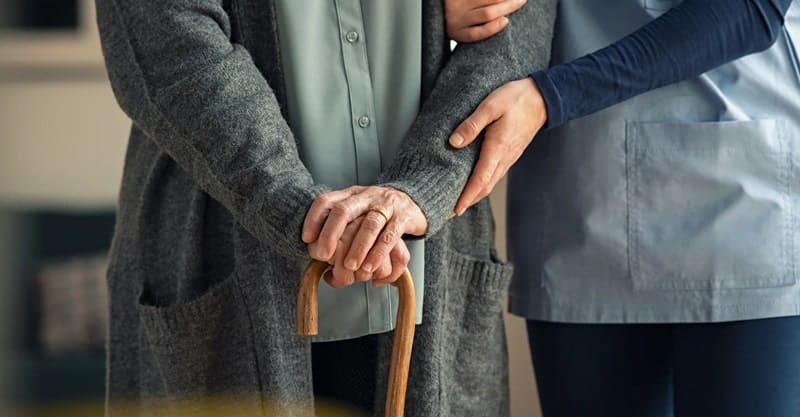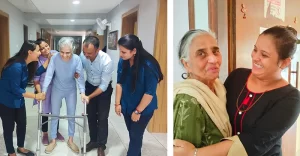Assisted Living for Disabled Adults
The respite care for disabled adults rests on their families’ shoulders. It’s often challenging not just physically but also morally well. Professionals who are skilled in caring for people with special needs help in this process and provide practical help to the patient to accelerate his recovery or feel more comfortable.
Home care for disabled adults is a lot of work and can cause physical and psychological stress because of carrying out several specific procedures. This is why the caregiver you trust to provide this care must be a true professional. But, just being professional in this kind of work isn’t enough. It is crucial to realize that people with these conditions are highly vulnerable, and their moral condition is vital to their physical well-being. Thus the caregiver must be attentive to the patient. The caregiver for disabled adults must encourage them and help them recuperate.
The procedure and the order of treatment procedures are based primarily on the condition of the patient. But there are common conditions that apply to nearly all patients. Particularly, the treatment of patients who are bedbound requires:
- Conducting general hygiene practices to stop the development of bedsores and atrophy.
- Monitoring the routines of the patient and ensuring the proper nutrition.
- As per medical advice, you can take the full range of actions and procedures to treat the symptoms, facilitate the treatment procedure, and ensure no complications.
- Assisted Living for Mentally disabled adults.
A variety of illnesses causes senile dementia. It’s a condition where patients can cause significant injury to themselves. It is also characterized by inattention, forgetfulness, and irritation. This is why caregivers should pay greater attention when caring for developmentally disabled adults.
The most distinctive characteristic of patients with dementia is that they can not have control over their lives. They can’t carry out their daily routines and communicate effectively with their loved ones or live on their own with no assistance.
These are only a few of the symptoms of dementia that you should pay close attention to:
- The violation of short-term as well as long-term memory.
- Seniors may not remember what they had at breakfast or might forget essential events that occurred several years ago.
- The sense of time and space.
- The person who is elderly “falls from reality,” wanders in a neighborhood that they have known since childhood, walks around in the supermarkets, etc.
- Patients with dementia cannot perceive new information and say that “it was once better.” The patient’s brain loses the capacity to process, analyze and synthesize information.
- The loss of self-criticism.
- The person can’t be told he’s careless or incompetent, incapable as He believes they are being unfairly criticized.
- The patient is aware of the necessity for medical intervention only in the beginning stage of illness.
Supported living for Disabled Adults
A few great ways of caring for people with developmental disabilities are various cognitive games and exercises. Encourage physical activity for adults daily; However, make sure that the exercises are simple and straightforward. If the person is involved in a move dear to them, you must keep him or their fascination with it. Give the patient enjoyable and varied leisure activities with an open and friendly interaction. Interaction with others is only possible during the early stages of dementia; therefore, it is crucial not to miss this opportunity.
The patient shouldn’t be kept in an apartment as it can accelerate the process of neuron degradation: combat mood swings and depression. People with dementia may feel that they are not self-contained. If possible, it’s essential to create a positive environment in the home and delight your loved ones with positive news, enjoyable movies and cartoons, gorgeous clothes, and photos of the entire family. Create the individual’s lifestyle – change their underwear regularly, combat bedsores, and bathe them often as well as airing the room and giving them food with the help of a spoon.
There is no method to treat dementia; however, you can reduce the progression of the disease and the development of the final stage. One of the most crucial things to keep in mind for anyone with senile dementia is to recognize the person you have known and loved before in the man suffering from the disease. You must respect the patient and be aware that he is not the one”speaking,” but his illness “speaks” but the condition.
The best way to take care of an older man who has dementia with a brain affected by the degenerative process is to leave the family. It is essential to consider that the confident and independent patient transforms into a child, rough and impulsive, and manipulative. However, children grow and acquire skills and capabilities, while older people who are over 60 and suffering from dementia cannot use them. In this instance, it is clear that the idea of a special pension in which an elderly loved one is given attention and care, the appointment of a professional nurse isn’t a betrayal.
It is not necessary to go through the hassle of finding people interested in the care of disabled adults. Professionals in residential homes for disabled adults like Papayacare are more knowledgeable about caring for disabled people. They will provide your loved ones with a better quality of life.
















